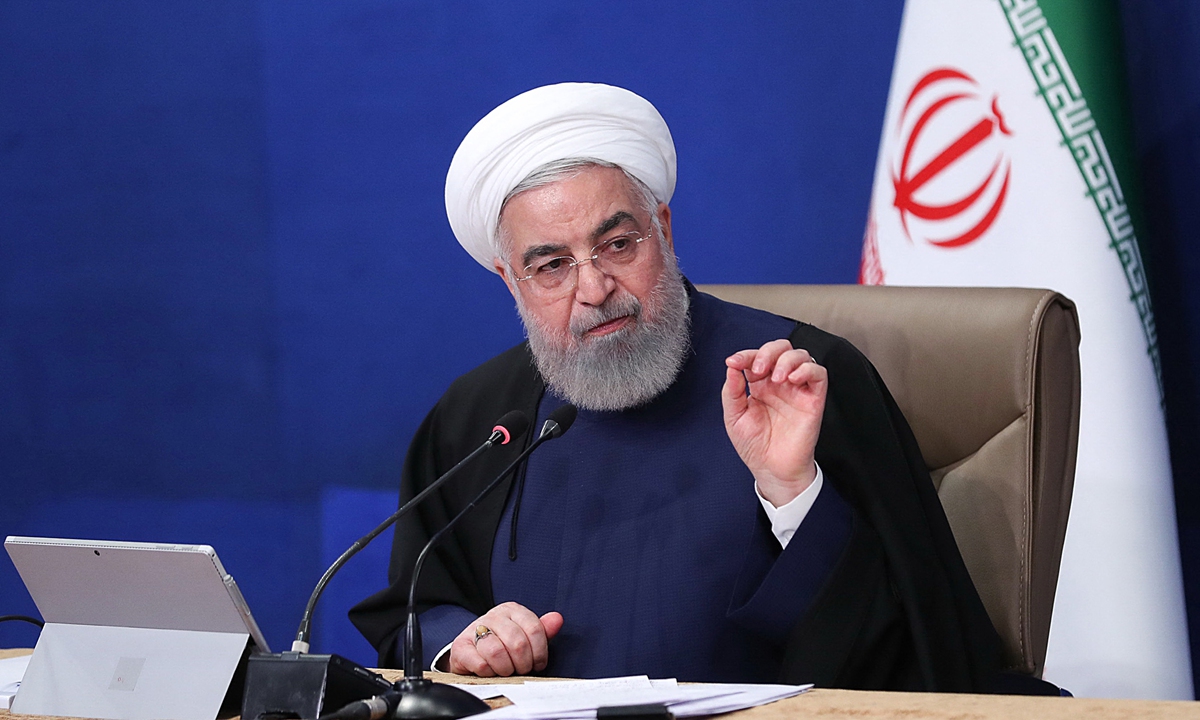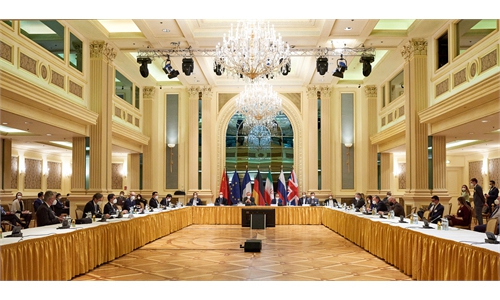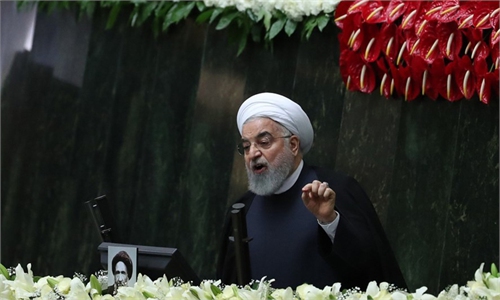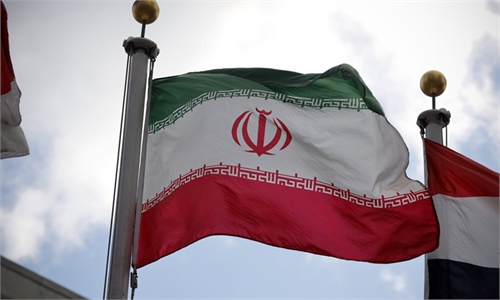Iranian President Rouhani says Vienna talks open ‘new chapter’
Iran's Rouhani says Vienna talks open 'new chapter'
Iranian President Hassan Rouhani said Wednesday that talks in Vienna on rescuing a troubled 2015 nuclear deal had opened a "new chapter."

An Iranian delegation met Tuesday with representatives of the remaining parties to the agreement to discuss how to bring Washington back into it and end crippling US sanctions and Iranian countermeasures.
US President Joe Biden has said he is ready to reverse the decision of his predecessor Donald Trump to withdraw from the agreement and reimpose unilateral sanctions. But differences remain over the mechanics of the move as Tehran has since responded by suspending compliance with some of its own obligations under the deal. The US was not present at Tuesday's discussions because Iran has refused to meet the US delegation so long as its sanctions remain in place.
Instead, the European Union acted as an intermediary, but all sides gave a positive assessment of the opening talks.
"A new chapter has just been opened yesterday," Rouhani told a cabinet meeting Wednesday.
"If [Washington] shows it is honest and sincere, that's all we ask... I think we'll be able to negotiate in a short time, if necessary, with the [other parties to the deal]."
In Washington, State Department spokesman Ned Price said that the US still believed "this is a constructive forum. The talks so far have been business-like and they are doing what we envisioned they would," Price told reporters.
"They are affording us a better understanding of Iran's thinking and we hope that in turn Tehran will leave this round of talks with a better understanding of what we might be prepared to do."
The US delegation has set up at a different hotel in Vienna, with EU negotiators acting as go-betweens.
At the same time, two groups of experts - on lifting sanctions and nuclear issues - are working "to identify concrete measures to be taken by Washington and Tehran" to restore the deal, Russian envoy Mikhail Ulyanov said.
Diplomats suggested they would know in a matter of weeks whether they might bear fruit before Iran's elections.

President Hassan Rouhani speaking during a cabinet meeting in the capital Tehran on April 7, 2021. Photo: VCG
An Iranian delegation met Tuesday with representatives of the remaining parties to the agreement to discuss how to bring Washington back into it and end crippling US sanctions and Iranian countermeasures.
US President Joe Biden has said he is ready to reverse the decision of his predecessor Donald Trump to withdraw from the agreement and reimpose unilateral sanctions. But differences remain over the mechanics of the move as Tehran has since responded by suspending compliance with some of its own obligations under the deal. The US was not present at Tuesday's discussions because Iran has refused to meet the US delegation so long as its sanctions remain in place.
Instead, the European Union acted as an intermediary, but all sides gave a positive assessment of the opening talks.
"A new chapter has just been opened yesterday," Rouhani told a cabinet meeting Wednesday.
"If [Washington] shows it is honest and sincere, that's all we ask... I think we'll be able to negotiate in a short time, if necessary, with the [other parties to the deal]."
In Washington, State Department spokesman Ned Price said that the US still believed "this is a constructive forum. The talks so far have been business-like and they are doing what we envisioned they would," Price told reporters.
"They are affording us a better understanding of Iran's thinking and we hope that in turn Tehran will leave this round of talks with a better understanding of what we might be prepared to do."
The US delegation has set up at a different hotel in Vienna, with EU negotiators acting as go-betweens.
At the same time, two groups of experts - on lifting sanctions and nuclear issues - are working "to identify concrete measures to be taken by Washington and Tehran" to restore the deal, Russian envoy Mikhail Ulyanov said.
Diplomats suggested they would know in a matter of weeks whether they might bear fruit before Iran's elections.



